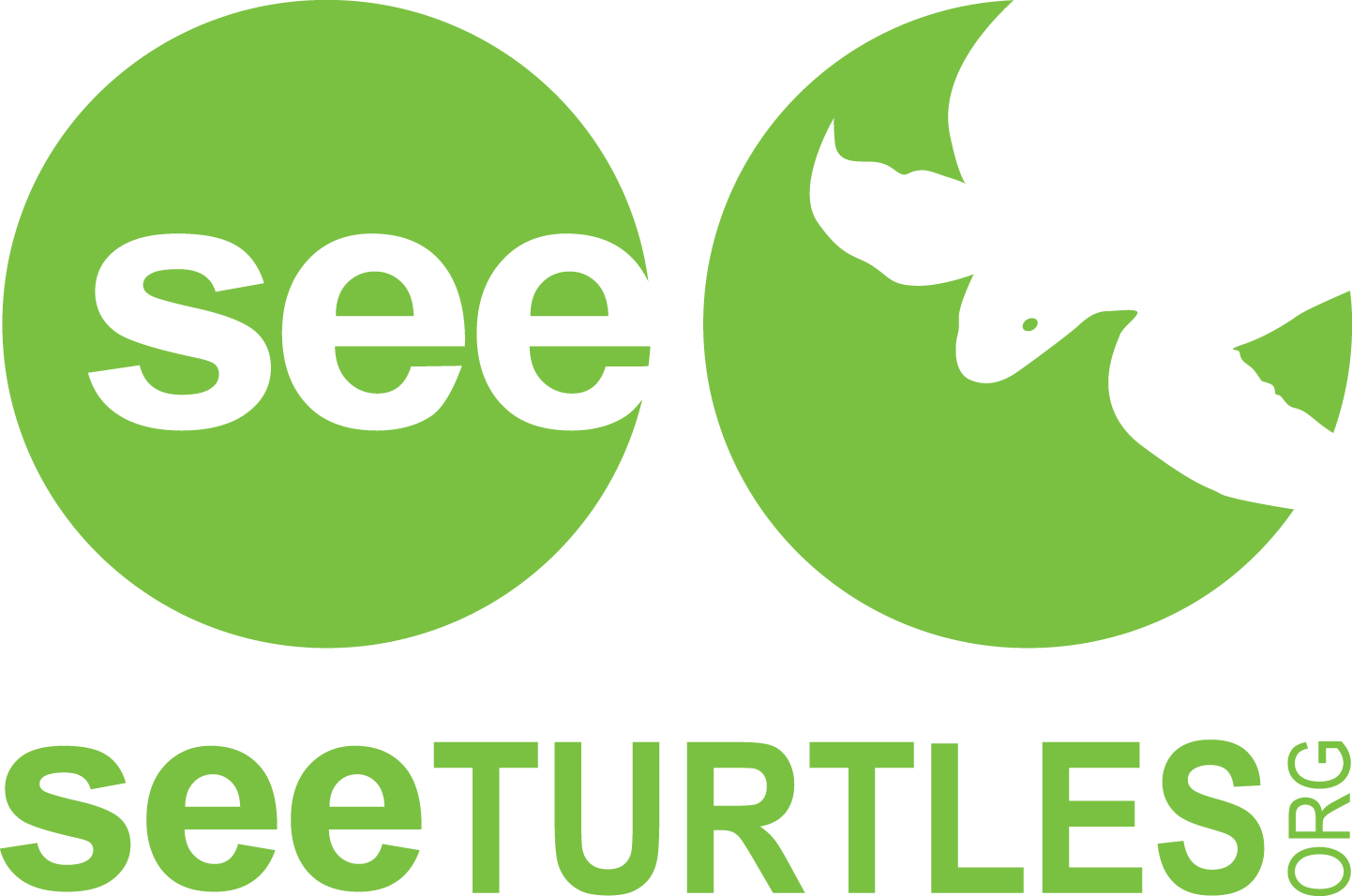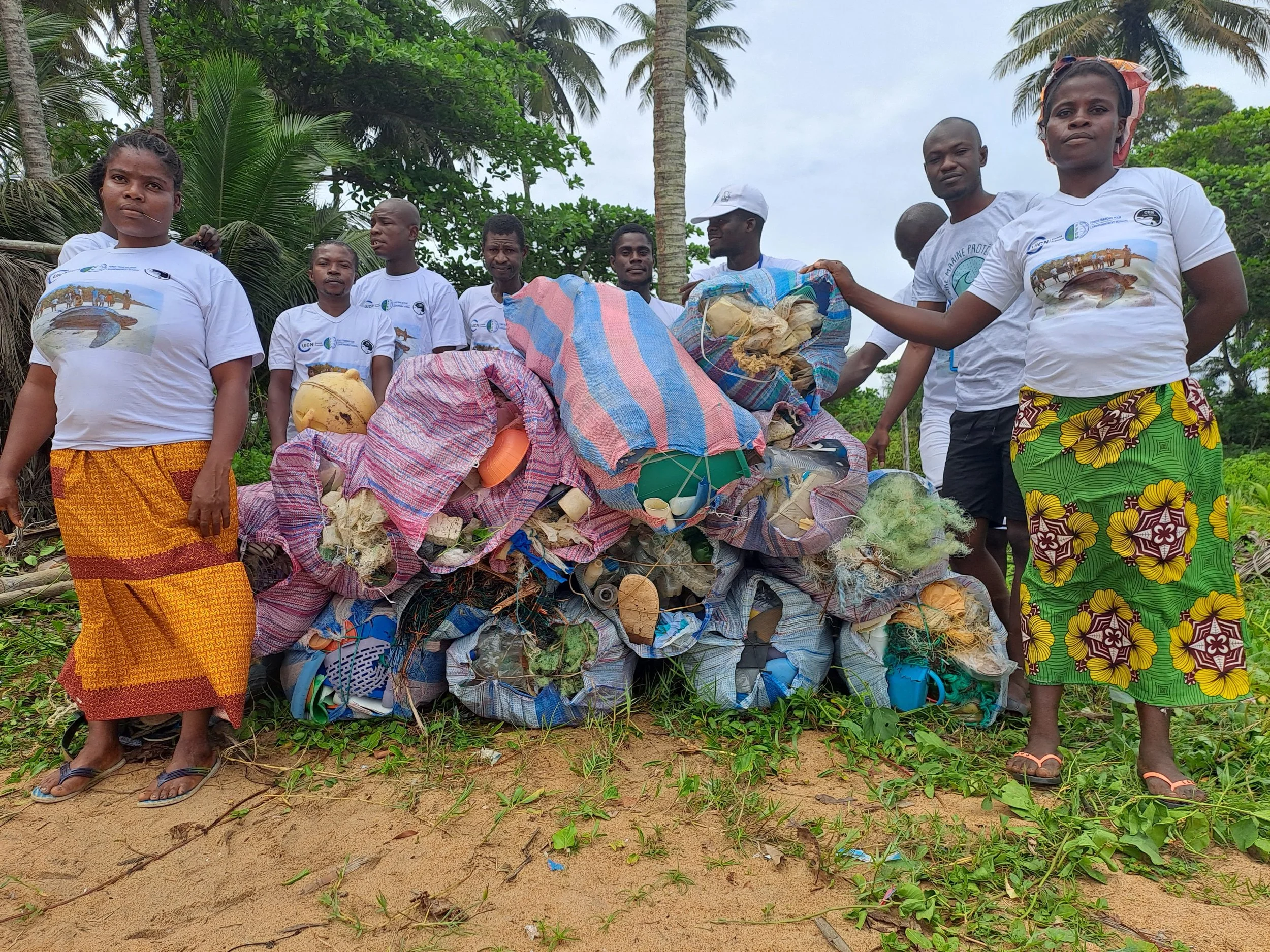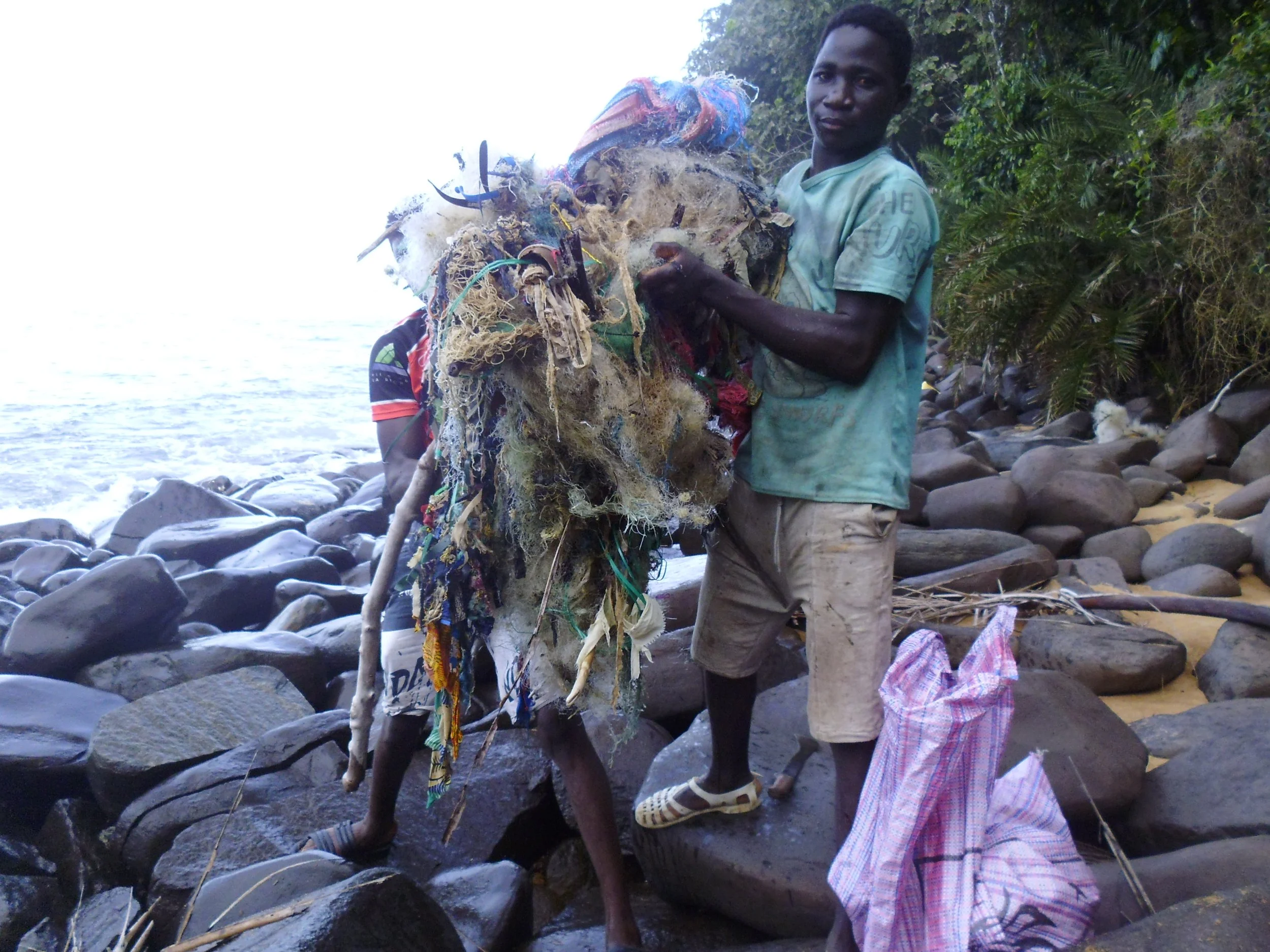Reducing Plastic Waste in Cape Verde & Ivory Coast
SEE Turtles, with the support of the Change Happens Foundation, supported the launch of two projects working to reduce plastic waste in sea turtle habitats and develop recycling infrastructure that benefit coastal communities. Through our Sea Turtles & Plastic program, SEE Turtles provided two $5,000 grants to Conservation des Especes Marines (Ivory Coast) and Fundacao Tartaruga (Cape Verde) that are helping to clean up thousands of pounds of plastic from important sea turtle habitats.
Over the grant period, the two organizations achieved significant progress in reducing plastic in these key sea turtle habitats including:
An estimated 96,000 lbs of waste collected between the two sites (11,000 lbs in Ivory Coast and 85,000 lbs in Cape Verde).
44 local residents and a total of 300+ including families benefitting from recycling programs (250+ people in Ivory Coast and 50+ beneficiaries in Cape Verde).
Launch of a recycling center in Cape Verde that provides income for turtle rangers out of nesting season.
Both projects combined generated more than $11,000 in financial benefits for local residents.
Fundacao Tartaruga: Cabo Verde
The Fundacao Tartaruga team, with support from our Sea Turtles & Plastic campaign and other funders, over the past two years have organized 34 beach cleanups, with an estimated 84,000 lbs of plastic collected with the help of 671 participants. These cleanups helped to maintain more than 6 miles of one of the world’s most important nesting beaches for loggerhead sea turtles. Most of the collected debris was transported to the local landfill as there are no commercial recycling facilities available to recycle the majority of what was collected. A small portion of the waste was taken to the LixoLimpo workshop, the small-scale upcycling facililty created with support from these funds by Fundacao Tartaruga.
Over the two years, the foundation has made significant progress in creating infrastructure for upcycling in the country. The process to purchase and ship the equipment took longer than initially anticipated but the workshop is now up and running and being manned by 7 local turtle rangers, allowing them to earn income outside of the nesting season where their salaries are paid. To date, approximately 1,000 upcycled products have been produced, including keychains, flower pots, combs, and other products. They are now also hiring an additional two female residents to produce items for the shop throughout the year. The project has generated roughly US $8,700 from product sales to date.
Beach cleanup, photos: Fundacao Tartaruga
Recycling machine
Conservation des Espèces Marines: Ivory Coast
During the grant period, the Conservation des Especes Marines (CEM) team has worked diligently to reduce plastic waste in the environment through various beach clean-up events. Over the project duration, CEM successfully collected a total of 5,035 kilograms (11,077 lbs) of plastic waste. This amount exceeds the 6,000 lbs Conservation des Especes Marines estimated for the initial application. Most of that amount was recycled through IPC Green Blocks, for a total of 4,835 kg (10,637 lbs), which IPC converts this waste into recycled plastic waste that is used to construct local schools and health centers. This recycled plastic generated $1,800 in income for the community members who participated in the project, in addition to the $1,200 in stipends, for a total community income of about US $3,000.
A total of 35 local people benefited from their involvement in the beach cleaning activities being paid a stipend to participate. This group included 5 people from the local Dawa communities and 5 fishermen, mainly chief fishermen. Each person has an average family of 8 on average, bringing the total beneficiaries to 250+ people. The chief fishermen played a crucial role not only in the clean-up activities, but also in raising awareness among their peers about the importance of plastic prevention. They participated in various clean-up activities, removing plastic waste from key areas such as fishing harbours and important nesting sites within the Marine Protected Area (MPA) beaches. Their involvement has been instrumental in maintaining the cleanliness of these vital ecosystems and promoting sustainable practices within the community.
To encourage the participation and support their income, the project provided financial incentives to cleanup participants of $200 per person total for the four cleanup activities. While the primary motivation was to sensitize and involve them in conservation activities, the financial support served as encouragement and recognition of their contributions. Although this support was not substantial enough to stabilize their economic situation, it demonstrated appreciation for their efforts and helped to foster a sense of community responsibility for environmental conservation.
Ivory Coast beach cleanups, photos: Conservation des Especes Marines




